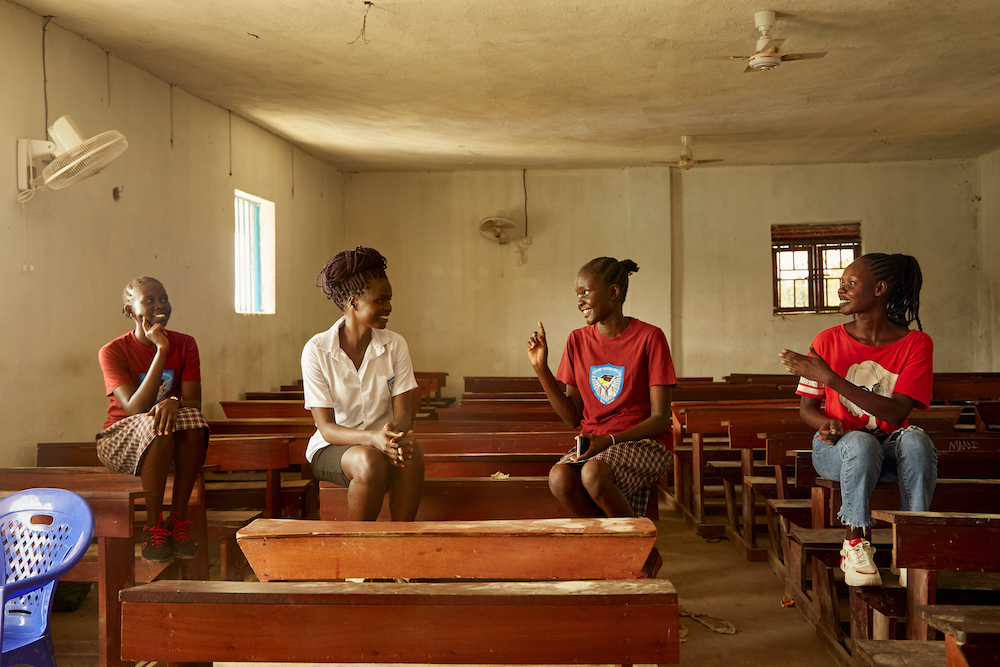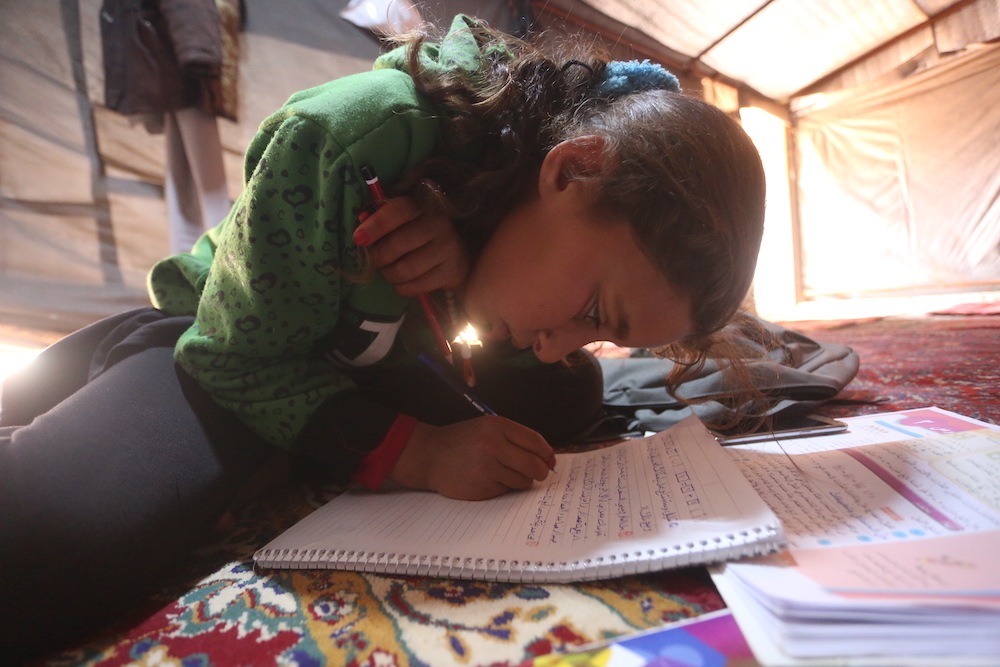
Listen to children when planning safe return to school, advise experts

Children in conflicts, Education in emergencies
A new guide says countries affected by conflicts and other crises should give students a say - to encourage their return to classes and address gender inequality.
The coronavirus crisis has swung a giant wrecking ball through education systems around the world. But it could provide an unexpected opportunity for some of the most troubled countries to make their schools better and more inclusive in the long run.
Nations affected by conflicts and other humanitarian crises should put children and the wider school community right at the heart of planning how to reopen their schools safely, say education experts.
That would keep more children in school and help to address gender inequality. Girls and other marginalised groups such as refugees and children with disabilities are particularly affected by school closures – leaving them more vulnerable to violence, discrimination, child labour, early marriage, trafficking and recruitment.
“Children have a right to be heard in processes that impact them and should be considered full-fledged actors in decision-making,” argues the Global Education Cluster. It brings together NGOs, UN agencies and other partners to help children affected by humanitarian crises in 23 countries, including Afghanistan, Syria, Cameroon and Colombia.
As governments grapple with the challenges of reopening schools safely, the Global Education Cluster has produced a guide called Safe Back to School. It outlines how programme teams can help to plan for the reopening of schools in the communities they support.

Maria, nine, follows a lesson by smartphone at a camp for internally displaced people in Idlib, Syria (UNICEF / Ali Haj Suleiman)
Among its six key principles in the back-to-school process are:
-
Children can play a major role in mobilising other children and the community, as well as ensuring accurate information is given out.
-
The whole school community – including children, caregivers, teachers, staff and local government – should be involved in an inclusive and accessible way at all stages.
The guide says children should be consulted to ensure that messages are child-friendly. If possible, students should take part when the messages are being drawn up.
Children, teachers and education staff should also be asked how they feel about school reopening – both positive and negative aspects. The guide adds: “An inclusive, participatory process can help bring all children and young people into school and leave no one behind.”
The pandemic has disrupted the education of 90% of the world’s students. The school systems of more than 130 countries are still affected but many are beginning to return slowly to classroom teaching.
The Global Education Cluster – which is co-led by UNICEF and Save the Children – says the key messages of a successful back-to-school campaign must be child-friendly, age-appropriate and available in local languages and in various formats. This can include social media, community theatre, song and peer advocacy.
Children and young people can play an important role in their local back-to-school campaign. They understand the issues that are most affecting them, which can help in targeting messaging and modality. Safe Back to School, produced by the Global Education Cluster
The guide adds: “Children and young people can also help identify classmates or others who have not returned to school.”
The Global Education Cluster is co-led by UNICEF and Save the Children. The charity listened to the views of children after a devastating earthquake struck Central Sulawesi in Indonesia two years ago – killing at least 2,000 people and damaging hundreds of schools.
Save the Children’s report Listening to Children outlined how primary-age students in the area were encouraged to talk about their fears and feelings using such methods as drawing, puppets and drama.
It told how “during a session on giving advice, one boy asked the local government to build a new school made of wood so it would be safer and they wouldn’t have to worry about being hit by falling concrete”. The report said “their perspectives also provide new ways of seeing issues, such as school infrastructure being much less important than resuming a schedule”.
Getting children back to school safely is also a major goal of the Global Education Coalition, which has brought together international organisations, civil society and private sector partners. Theirworld is a member of the coalition.
More news

